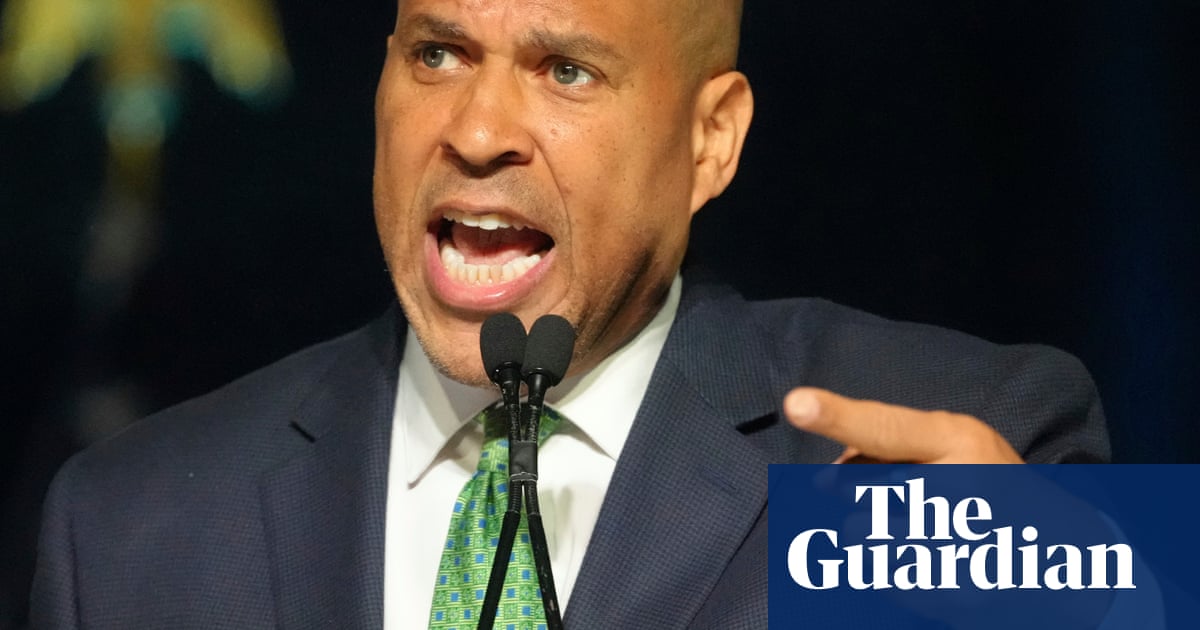A leading elected Democrat rejected the idea of taking campaign donations from tech billionaireElon Musk, whose spectacular fallout with former allyDonald Trumphas roiled American politics.
Trump on Saturday said Muskwill face “serious consequences”if he moves to support Democratic political candidates in any upcoming elections, following apublic riftbetween the two men over Musk’s staunch opposition to the cost of US president’s planned piece of landmark domestic legislation.
ButCory Booker, a senator for New Jersey, scotched any idea he would take any Musk cash. “I would not accept money from Elon Musk for my campaign,” Booker told NBC’s Meet the Press on Sunday.
But Booker added, referring to the Republicans budget bill that Musk has criticized, “I would be supportive of anybody, includingElon Musk, putting resources forward right now to let more Americans know, sound the alarm, treat this like a Paul Revere moment.”
Booker added: “More Americans have to understand that if this bill passes, average Americans are going to see their costs skyrocket as this president again pushes legislation that is indicative of his chaos, corruption and cruelty towards Americans.”
The senator’s comments come asDemocratswrestle with the how to turn the dramatic fallout between Musk and Trump into opportunity. Musk turned his back on the party in 2022 and contributed $270m to Trump’s re-election campaign in 2024, providing crucial help in the Republican’s eventual victory.
As the Trump-Musk feud intensified on Thursday, Muskposted on X: “In November next year, we fire all politicians who betrayed the American people.,” clearly referring to any politician who supported Trump’s budget bill.
Ro Khanna, a Democratic congressman, reportedly talked with one of Musk’s “senior confidants” on last week about whether Musk might now want to help the Democrats in the midterm elections next year.
“Having Elon speak out against the irrational tariff policy, against the deficit exploding Trump bill, and the anti-science and anti-immigrant agenda can help check Trump’s unconstitutional administration,” Khannatold Semafor.
“I look forward to Elon turning his fire against Maga Republicans instead of Democrats in 2026,” Khanna, who has argued that his party was unwise to alienate Musk, told the outlet.
However, leftwing politicians, including Vermont senator Bernie Sanders and New York congresswoman Alexandria Ocasio-Cortez, have publicly pictured Musk as what voters should be against: powerful wealthy billionaires seeking influence through politics.
Sanders told CNN’s State of the Union Sunday that Musk had “evolved” into an extremist since he voted for Obama in 2008.
“Over the years he has developed into a rightwing extremist. The issue and drama over what happened last week is that we are living, increasingly, in an oligarchic society. Musk said: ‘Hey listen, I spent $270m dollars to get you elected. I bought you the presidency …”
“This is a fight between oligarchs. It’s a fight about power among the few, and it’s really an embarrassment for those of us who believe in democracy and the rule of law,” Sanders added.
Musksaid last monththat he planned to spend “a lot less” on political campaigns as he scaled back and ultimately exited his time in government, where Trump had tasked him with massively slashing federal spending and jobs.
“In terms of political spending I’m going to do a lot less in the future,” Musk told a Bloomberg forum in Doha. Asked why, he responded: “I think I’ve done enough.”
But Musk’s opposition to Trump’s “One Big Beautiful” bill budget proposal, calling it an“disgusting abomination”, by definition puts him in relative proximity to Democratic positions on that issue.
Booker was asked if agreed with Musk about the planned legislation that Trump has made a centerpiece of his administration. “I agree that it’s going to saddle this country with trillions of dollars of debt, endanger our entire economy … This is a morally wrong bill. And it’s definitely, definitely an economically wrong bill as well.”
“This is not about right or left, it’s about right or wrong,” he added. “And I welcome Elon Musk, not to my campaign. I welcome him right now, not to sit back and just fire off tweets, to get involved right now in a more substantive way and putting pressure on congresspeople and senators to not do this.”
